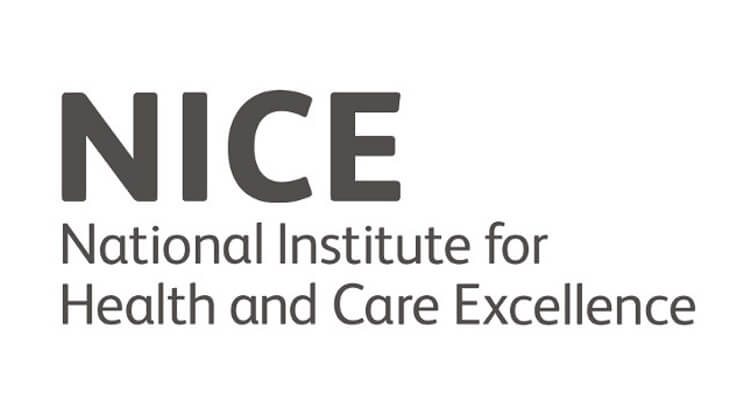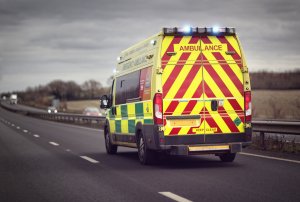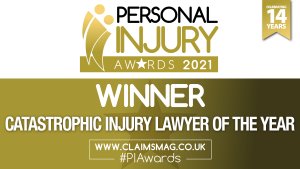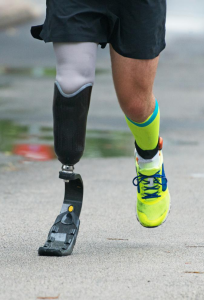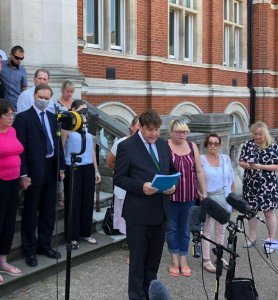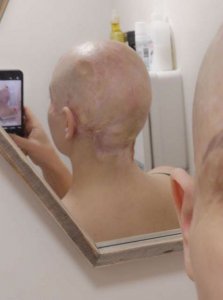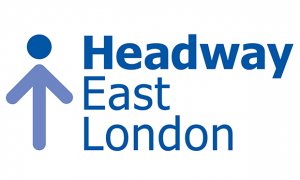Trauma Injury Claims – A Pathway Towards Recovery
Sophie DaviesTable of Contents
According to the National Institute of Clinical Excellence (NICE), major trauma is an injury or group of injuries that are life-threatening and could ultimately be life-changing. In the UK, major trauma is the leading cause of death and disability in people under the age of 45. Indeed, many that survive a traumatic injury will have permanent disabilities as a consequence.
Recovery from serious trauma takes time. It is also financially costly. Below is a short guide on how to progress from physical healing to gaining compensation for your injuries, all of which can have a significant impact on you and your family’s present and future.
Trauma injuries
A traumatic injury often arises from a high impact incident, such as a road traffic accident or fall from a height. Injuries can vary widely from multiple fractured limbs to spinal and brain injury. Other traumatic injuries can arise from burns, stabbings, shootings, acid and electrocution.
Ambulance crews typically are first responders to scenes of major trauma. The team will make an initial triage assessment of those people affected. Depending on what they find, the victims will be either transferred to a local trauma unit for stabilisation or they may be transferred directly to a regional Major Trauma Centre, which specialises in the treatment of people with complex, serious trauma.
Trauma unit/A and E/hospital
Further assessment is carried out at the trauma centre, which may be based in the local Accident and Emergency department or hospital. A consultant led trauma team will intervene in any life-threatening conditions and perform additional tests such as CT scanning. Early and appropriate clinical treatment will optimise recovery, whereas inadequate investigation and treatment is more likely to result in exacerbated injury and death.
Types of traumatic injuries/assessing impact of injuries
In the short term, injuries are assessed in terms of life-threatening potential, such as haemorrhage, clots and problems with breathing. Pain is relieved, fractures stabilised and risk of further injury managed: an important example of this is spine immobilization and protection.
In the more medium and long term, the impact of any injuries will evolve over time. Clinical assessment of injury will be ongoing, considering aspects such as quality of life, pain, loss of function and any psychological effects.
Rehabilitation
Once the acute healing phase is completed, ongoing assessment may determine that further rehabilitation is required. The aim of rehabilitation is to maximise functioning, with a focus on mobilisation, weight bearing and day to day needs such as washing, dressing, and eating. Robust rehabilitation ensures the best outcomes for physical, psychological and social recovery following trauma. Ongoing support may be required for psychological rehabilitation. Later, in cases where a person has suffered life changing injury, there may be a need for vocational rehabilitation, to assist with a return to work.
Rehabilitation does not necessarily need to be carried out in an acute hospital setting but is more likely to be facilitated by a specialist rehabilitation centre or through outpatient appointments. Rehabilitation therapies may also be supported at home, or through residential transitional living, depending on what is required.
Even if you have not received a rehabilitation package and you believe you may benefit from rehabilitation therapies, you are entitled to seek support, through your GP or consultant. It is also possible to contact rehabilitation services yourself, directly.
Funding
The cost of your rehabilitation should be covered by the NHS. Other possible sources of funding include local authorities and medical insurance. However, if you feel you could benefit from more frequent and intensive rehabilitation sessions than what is currently on offer, then you do have the option to go privately. However, this could come at a significant additional cost.
Interim payment
This is where interim payments come in. An interim payment is an early part payment of compensation. If you are making a personal injury compensation claim, your solicitor will advise you to request an interim payment from your opponent.
If the person who caused your accident (the defendant) admits liability, an interim payment may be released by their insurance company. This money can then be used to help fund treatment and rehabilitation.
Case manager and rehabilitation programme
A defendant’s insurer will also often be prepared to cooperate with your solicitor in assessing your immediate need for rehabilitation. The first step is to appoint a rehabilitation case manager. This person is usually a professional with a background in nursing or social work, who helps to organise and monitor services for the benefit of the person undergoing rehabilitation. They do not provide clinical care but work in co-ordination with the rehabilitation team to advocate for you and to make sure that you are receiving the appropriate care and rehabilitation.
Evidence for your legal case
When you make a claim for personal injury, it is important to gather as much evidence as possible to support your case. In the event of major trauma, this task is certainly more complex, given the severity of the injuries and the medium- and long-term repercussions of those injuries. Photographs, witness statements from family members, records from the emergency services, trauma team and reports from specialist medical professionals will all be vital.
Protecting your future
Good quality medical support and rehabilitation will help maximise your recovery from injury. Even so, you could be left with long term repercussions impacting both you and your family. One way of helping to protect your future and that of your loved ones is to secure financial compensation for your injuries.
Gaining compensation
Major trauma cases are often complicated. Then there are the time limits to think about. Usually court proceedings for personal injury claims must begin within 3 years of the injuries occurring.
So, if you think you may be eligible to claim compensation for your injuries, it is important to speak to an experienced, specialist solicitor. Choose a solicitor who is a member of the Law Society’s personal injury accreditation scheme. Members of the scheme must have at least 5 years of experience working with personal injury claims and must comply with a code of conduct and consumer charter.
By choosing a specialist solicitor, you can trust that your case will be handled correctly. The solicitor will review your case, seek further medical evidence where appropriate and will ensure that any claims that you make will be handled within the correct guidelines and timelines: all increasing the chances of you being awarded the compensation that you and your family need and deserve.
Share this article
Contact
Contact us today
For a free initial conversation call 020 7485 8811
Email us Send us an email and we’ll get back to you
Related InsightsVIEW ALL
- 3.2.2023
Bereavement Support Payment
What are Bereavement Support Payments? Bereavement Support Payments are a benefit historically only available to parents whose husband, wife or...
Read more - 18.1.2023
Pedestrian receives £1.75 million following amputation
Kate Milton, acted on behalf of a Romanian National who was hit by a speeding vehicle as she was walking...
Read more - 28.2.2022
Client left with brain injuries after car accident...
Our Spanish client was the front-seat passenger in a car driven by her husband who was involved in a high-speed...
Read more - 9.1.2022
Settlement secured for head injury caused by hammer...
Osbornes Law has secured a £100,000 settlement for her client who suffered serious head injuries after being attacked in prison by...
Read more - 24.11.2021
Ben Posford named catastrophic injury lawyer of the...
Osbornes Law are delighted to announce that Ben Posford has been named as ‘Catastrophic Injury Lawyer of the Year’ at...
Read more - 16.11.2021
Significant lump sum for below the knee amputation
Mr N, a Romanian man in his 30s, came to the UK to work with his father-in-law in early 2018. He...
Read more - 5.11.2021
Seven figure leg amputation settlement
Mr S was walking across the yard at work when he was run over by a forklift truck from behind....
Read more - 26.10.2021
Examples of Serious Head & Brain Injury Settlements
C–v-N Child pedestrian crossing road knocked over by car when running into road sustaining a traumatic brain injury and...
Read more - 23.9.2021
Croydon Tram Crash Inquest Recommendations Welcomed
The families of victims killed in the Croydon tram crash today welcomed a coroner’s recommendations to prevent another tragedy....
Read more - 31.8.2021
Client pursuing head injury claim after life changing...
A young woman has told of the moment her head was completely scalped and lost her ear when her hair...
Read more - 2.8.2021
London Tube Sign Causes Head Injury
Serious brain injury claim after falling London tube sign knocks pedestrian unconscious. An airline pilot ‘miraculously’ survived after a 20kg...
Read more - 22.7.2021
Croydon Tram Crash Inquest Concludes
Families of Croydon tram crash victims disappointed by Inquest conclusion The families of victims killed in the Croydon tram crash...
Read more - 1.7.2021
Limb amputation to pedestrian awarded £1.8million
Our client suffered life-changing injuries as she was walking home from work. A speeding driver lost control of his vehicle...
Read more - 23.6.2021
Osbornes Helps Client Following Amputation at Work
Mr C a young Romanian national, came to this country for work in 2015. He soon found work as a cleaner...
Read more - 17.6.2021
Life changing injuries following motorbike accident
Our client, who is from Hungary was riding his motorbike in London when a lorry turned across a junction and...
Read more Serious Orthopaedic Injury Settlement for £1million
Our client was a 25-year-old Spanish resident who was travelling in his works’ van when the van was hit by...
Read more- 15.2.2021
Fatal accident claim settled for £125,000
Fatal Accident case following the death of Mr D who drowned as a result of a boat collision in the...
Read more - 15.10.2020
Fatal Accidents In The Workplace
A new article from the BBC takes a looked at fatal accidents at work. The report states that since 1981, there...
Read more - 5.10.2020
Young female pedestrian killed in road accident
Sam Collard, an Associate in the Osbornes serious injury team, recently settled a fatal accident claim brought on behalf of...
Read more - 17.9.2020
Osbornes partners with leading Brain Injury Charity
Lights, Camera, Legal Advice! This week marks the launch of a new series of 16 legal advice videos with brain injury...
Read more - 9.6.2020
Senior Catastrophic Injury Solicitor Robert Aylott gains further...
Rob Aylott, senior solicitor in the Personal Injury team has recently been confirmed as an APIL Accredited Fatal Accidents Specialist (...
Read more - 22.5.2020
Choosing a solicitor for someone who has suffered...
According to the organisation Headway, more than 1 million people attend Accident and Emergency Departments with a head injury every year...
Read more - 15.9.2019
Osbornes Settles Brain Injury Case For Six Figure...
Osbornes acted for a Hungarian doctor who sustained a serious brain injury in a road accident. She was walking from...
Read more - 2.9.2019
Osbornes Law joins legal panel of amputee charity
London law firm Osbornes Law has joined the legal panel of the Limbless Association, a charity that supports amputees and...
Read more
